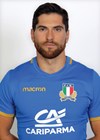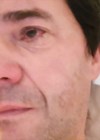As an early 80s kid, if you lacked sufficient pocket money, building a music collection entailed recording your favourite songs off the radio with a cassette deck and hoping the presenter didn’t interrupt at any point, with a finger hovering over the pause button.
One of the songs which I remember taping during the Sunday evening Top 40 back in 1984 was Smooth Operator by Sade. I recently discovered that the record producer and musician, Robin Millar, was responsible for not only the production of this song but the whole of Sade’s debut album, Diamond Life. It won the 1985 Brit Award for Best British Album and was also named as one of the best 10 albums of the last 30 years at the 2010 Brit Awards.

Robin is one of the world’s most successful record producers with 150 platinum, gold and silver discs, 44 number one hits and 55 million record sales to his name. He has been given various names over his illustrious career including ‘Golden Ears’ by Boy George, ‘The Man Behind Sade’ and ‘The Original Smooth Operator’. He has worked with many other famous artists like Sting, Kate Bush, Johnny Marr, Eric Clapton, Elvis Costello, Peter Gabriel, Alison Moyet, Patricia Kass, Malcolm McLaren, Everything But The Girl, Fine Young Cannibals, Scritti Politti and one of my favourite 80s bands, Strawberry Switchblade. He has also been involved in many charitable ventures and in 2020 was appointed chair of the disability charity Scope, representing 14 million disabled British people. His services to both music and charity were finally recognised in the recent 2023 New Year’s Honours with a knighthood.
What is even more admirable is that Robin has achieved so much over his life despite developing visual impairment from X-linked retinitis pigmentosa at a young age, and ultimately losing his vision completely by his mid-30s. I was fortunate to be able to speak with him over the summer to ask about his career, the impact that his visual impairment has had on it and his experiences with ophthalmology services and the management of his condition.
Robin was born in Tottenham, London to an Irish father and West Indian mother, and raised alongside his older sister Rose. The first problem with his vision he became aware of as a child was difficulty seeing the stars in the sky at night. His poor night vision became more problematic at school in the winter when the clocks went back.
“It was dark by the time I left school. Getting the bus was alright, but the walk from the bus stop to home was more suburban. There were lamp posts where I could see pools of light and the area around it but then complete blackness in between. I memorised the route but if I didn’t focus my mind and it wandered and I was distracted, on more than one occasion I would walk headfirst into a tree.”
As a child he really enjoyed riding a bike. At the time this did not pose too many difficulties during the day, but he also cycled at night in urban areas despite the fact that, looking back, he feels that he must have been a liability because he had such a narrow field of vision. He particularly enjoyed cycling in the rain as this would cause the roadway and pavement to shine and glisten, making the route ahead much more visible.
At school he also loved ball sports which were challenging given his visual difficulties. He ended up being the scorer for the school cricket team “which was the first time I realised that if you applied yourself to a situation, you could devise strategies. I couldn’t see the ball ever, but I could see people running between the wickets and the umpire’s signals denoting sixes, fours and runouts, etc.” In this way he could accurately keep the score.
Robin’s visual prognosis was abruptly brought home to him at a traumatic consultation at Moorfield’s Eye Hospital on his 16th birthday. The consultant said to him, “We can confirm your diagnosis. You’ll go blind in 25 or 30 years. It’s possible that there will be a cure but it depends on how many youngsters are run over by buses and we can get at their eyes to take a look. Pop down the corridor and see the nurse and she’ll give you a pair of dark glasses and a white stick.” Even today, Robin is upset by this episode and believes that it was thoughtless and insensitive in the extreme. In the absence of a medical solution there was no consideration for patient welfare, psychology or morale. He had the feeling that the consultant just wanted him out of the room as quickly as possible. No one sat down to counsel him and ask him: What matters? What’s important to you now? After leaving the hospital he was in a state of shock, so much so that he missed his bus stop on the way home and took the bus right to the end of the line.
Robin was a keen musician and guitarist as a teenager, and from very early on knew that he wanted to make music. In his late teens, his sister Rose started dating a young guitarist called Mick Taylor. One day Mick came back to his flat in Paddington to inform them he had successfully auditioned as a guitarist for the Rolling Stones following Brian Jones’ departure. From then on Robin was in the inner sanctum of the band, spending time and going on tour with them. Robin then described a pivotal moment during this time when he was aged around 18 years old:
“It was at Knebworth, watching the Rolling Stones playing a concert as the sun was going down. I was at the side of the stage, standing between Jack Nicholson and Paul McCartney, peering over Bill Wyman’s bass stack, and watching them play You can’t always get what you want. There were 60,000 people in the audience waving their cigarette lighters backwards and forwards in time to the music. For me the lights were twinkling like stars that I had never seen before. At that moment I thought that I want to make music like this, that people connect to.”
Robin went on to describe a saying amongst musicians: ”What’s the difference between a jazz musician and a rock musician? A rock musician plays three chords to 5000 people and a jazz musician plays 5000 chords to three people. I didn’t want to be that second person.”
Despite his musical ambitions, at 18 years of age he went up to Queen’s College Cambridge to study law. However, he described being essentially shepherded into this degree without any consideration for what he wanted or drove him. He wished that he had been asked: “What do you really like doing? What do you feel your real skills are that have nothing to do with your disability?” At the time he was attracted to playing and writing music but his parents thought that he should have a solid career. John Mortimer’s father was a famous barrister and blind, “and somewhere in my parent’s naivety they thought that law was a good career.” So, he was informed that he would study law and he would sit the Cambridge entrance exam.
"Why are you trying to make people be independent? […] Why don’t you actually just ask them how they are and what they need and what they can contribute?"
After graduating from Cambridge, he started working in the legal department of a record company which he didn’t enjoy at all. He struggled with his vision and found himself being ashamed by his disability. He was challenged about his poor performance but did not feel able to explain that this was because of problems with his vision. “So, I literally just lied. I pretended that I had been left some money by an aunt and that I was therefore going to be able to leave my job to try my hand at making music. Pathetically, I even went to Selfridges and bought watches and Parker pens and handed them out to people, showing them how much money I now had.” When he was working there, he also noted the large royalty payments being paid to artists such as the drummer from Slade and realised that he would never make any significant amount of money if he stayed in his legal job. “I have always been very keen to earn money, and that’s never changed. I was a man in a hurry and I wanted to make my first million by the time I was 30 and my eyesight had something to do with that.” He therefore left his job, packed his bags and headed for Paris.
Whilst busking on the Paris metro, a chance opportunity led to Robin participating in a recording session at a studio. The manager of the studio, Pierre, noted that he appeared to be very interested in what was going on and suggested that he take a job there. Robin then felt the shame and humiliation of his poor vision once again with his cheeks burning and mumbled something about being worried about not being able to see properly. However, to his surprise, Pierre replied saying, “Don’t worry, we can work around that.” This ultimately set Robin off on his record producing career and whilst in France, he had a number of gold and silver discs by French and Belgian artists. After several years there, in 1980, he headed back to London again determined to set up his own studio.
Around this time, Robin still had ambitions as a solo music artist, but in a meeting with the record plugger, Clive Banks, was informed that he didn’t have a hit voice. However, having listened to a variety of punk, African and French tracks recorded during his time in Paris, Clive told him that he was a very talented record producer and was happy to manage him in that regard. Robin went on to found Power Plant recording studios in 1984 and his breakthrough as a record producer came the same year with the release of Sade’s multi-platinum debut album, Diamond Life. Many other hit records followed in that period including Eden by Everything But The Girl.

While at the top of his game, Robin’s vision was starting to fail, and things came to a head while he was recording Sade’s second album, Promise, in the Camargue, southern France. Following Sade’s first hit record, the band felt a lot of pressure and constant scrutiny. After touring they wanted to isolate themselves and record in a quiet place in the sunshine with a swimming pool. This presented problems for Robin, because while he was in his recording studio in London he could manage with his poor vision as he was in familiar surroundings and knew where everything was. However, catapulted to an alien recording studio in the Camargue where he had difficulty even navigating the rocky path from the accommodation block to the studio he really struggled. He realised that he couldn’t cope but felt too much shame to be able to articulate his predicament to the band. He therefore confected an argument with the band to avoid telling them that his eyesight was letting him down and phoned his wife to ask him to collect him and take him home to London. He only explained to the band what had happened 20 years later.
Following this, Robin ended up in a downward spiral as he wasn’t psychologically equipped to cope with his vision loss. He also found that with his deteriorating vision he started to flounder in the recording studio. In the late 80s when the interest rates were going up, he struggled with trying to juggle everything in his business. Retrospectively, he realised that he was also too hard bitten and bloody minded to ask for quality help and advice when he should have done. He still managed to stop himself from becoming bankrupt by selling off most of his assets in a fire sale, “But I came out intact and started all over again.”
This renewal began where it all started the first time around, in Paris, where he met up with his old friend Pierre and pitched to the singer Patricia Kass to produce a couple of songs. At the pitch she said to him, “My fans told me that although I am having hit singles, my records are a joke. I would rather make a really good record and sell less.” Robin replied to her, “Why don’t you make a really good record and sell more?” These were the magic words which went on to produce her breakthrough hit album Je te dis vous in 1993, selling over three million copies in 47 countries. “I worked incredibly hard on that record and it was massively successful. I was up and running again.”
In 2010, however, Robin put out a press release saying that he was retiring from record producing. I asked him why he made that decision, given that he was so successful. He explained, “The Apple Mac changed the game. There was software that if you want to put it crudely, could mimic a full-size recording studio, and so record companies said, “This is great. We don’t need to book out Abbey Road for two months. We can just get this bloke with his Apple Mac and two microphones, and it’s got simulations for what Abbey Road sounds like, and people can do it in their bedrooms.”
Robin had been used to spending seven to eight weeks recording an album in a room that he knew intimately, and that would have probably cost over a million pounds to build with everything just the way he liked it. Increasingly the record companies were saying, “Well you can record the drums at the studio but everything else you need to use a project room.” He laments that little project rooms then sprung up all over London that were just a pair of speakers on a desk with thin walls where you could hear music being made all around you. It became a hostile and alien environment that he could not control. All the big recording studios started closing down. “It’s been absolutely catastrophic for the whole industry with the loss of apprenticeships and training,” he described. He felt he had created his best work in large tailor-made studios with great musicians but “all that was gone and I didn’t want to do it anymore.”
Since retiring from record producing, Robin has become heavily involved in charity work and at the start of the COVID-19 pandemic in 2020 he was appointed chair of the charity Scope. Robin explains that he was headhunted for this role not only because he had the skills to manage a large organisation which was in a financial crisis precipitated by the pandemic, but also because he was disabled. It was also important for the charity that his disability be visible. He was therefore advised that whenever he meets a government minister or celebrity and is representing disabled people, he should be carrying his white stick and wearing his dark glasses. He is now championing the cause for people with disabilities, encouraging companies to employ them and increasing their diversity and inclusiveness. “I explain to them that far from costing them huge amounts of money, it’s likely to make them huge amounts of money.”
In 2013, Robin underwent a 12-hour operation at King’s College Hospital, London to insert an electronic retinal implant to try and restore some vision. “I hadn’t seen anything for several decades, and within a second of them turning it on I could see this crystal-clear sort of magnesium white square and I got terribly excited about it.” Unfortunately, after three weeks the implant was rejected and it had to be removed. He remains very glad to have had the experience and would do it again. However, he believes that the companies and physicians promoting the implant should be more realistic about the potential outcomes. “I was never going to be able to see my grandchildren’s faces. There was no detail, just flashing lights that might change in intensity on moving towards a light source.”
Robin is also concerned that there is an obsession with independence when providing interventions for disabled people. “Why are you trying to make people be independent? Why are you trying to make them live alone? Why are you trying to make them not rely on anyone else? What a ridiculous way to carry on! Why don’t you actually just ask them how they are and what they need and what they can contribute?” With regards to the retinal implant, one of the aims was to provide independence, but really for Robin, if the implant had carried on working, it would have been a tonic but not have given any degree of independence.
Robin got a great deal of satisfaction from working with Sade, especially recording the first album where he felt he hit his sweet spot as a producer and arranger. However, the most fun he had was “the six months with Malcom McLaren in Paris, chasing down Françoise Hardy, Juliette Gréco, Catherine Deneuve and Jeanne Moreau and breaking into the Père Lachaise Cemetery. The whole fun that was Malcolm McLaren. I was there in Paris without anyone else and he was effectively my sort of guide. I just love being in the presence of people who get things done by sheer force of will. I watched him extract more and more money out of unwilling record people by sheer cheek of the man. But he did deliver, was totally immersed in every project and he taught me a lot.”
I asked Robin, if he could go back in time to his 17-year-old self, what he would say to him. “It’ll all be fine,” he says. “Relax, because the next 15 years are going to be brilliant. Watch out for the bit from the mid-80s to the mid-90s. Your eyesight will go completely and you won’t be as well prepared as you thought. There’s going to be a point just when you think you’ve got the world in the palm of your hands and two lovely children, and it’s all going to go weird and you’re going to have to pick yourself up and learn and start again. Accept the new reality and get help. But you’ll come out the other side and become financially solvent again.”
Robin had some advice for any aspiring musician, which is also a word of caution, and it is that everyone that he has ever met who has had a deal from a major record label such as Warner, Sony or Polydor etc., on their terms because they promised them success, has ended up very unhappy later. “They won’t become unhappy if they are hell bent on making money and they do exactly what the record company wants them to do and play the game. They will become unhappy as soon as their musical ego starts to rear its ugly head. So, I know it sounds ridiculous, but don’t sign a record deal.”
He also elaborates on success in the music business. If there are two components that are going to make music successful, one of them being a fantastic, amazing record in every department and the second is an artist hell bent on self-publicising, then he believes the second is the most important. “Because Madonna only had to be good enough. The Spice Girls only had to be good enough. But they had all the moves and all the shapes for attracting publicity.” The Holy Grail, which for Robin was Sade, “is someone whose music is good enough that you think will do pretty well, but who also looks like a goddess and is clearly not only talented at styling and winning people over but knows exactly the prize that they are after. And that’s what you want, that combination. That’s when you get Dua Lipa or Taylor Swift.”
The song which Robin is most proud of creating is The Sweetest Taboo by Sade. The reason for this is not only because it is the most played Sade song but because from the initial concept to the finished article, it is his. The last time he spoke to Sade about music she said, “You should be the proudest of The Sweetest Taboo because that is 100% you, Robin.” He was also delighted when the song was recognised in 1999 by Vibe, the biggest R&B magazine in the world, after readers voted it their second favourite song of all time just behind Marvin Gaye’s Let’s Get It On.
As a teenager, Robin found that R&B music spoke to him in a very different way. “Singing and playing the blues was the first way I could express how unhappy I was at my lot in life, mostly due to my eyesight difficulties”, he explained. Therefore, this formal acknowledgement of his contribution to the R&B genre was a very special moment, especially when Sade sent him a copy of the magazine with a card saying, “I don’t normally pay attention to these things but… blimey!”
The song that would headline the Spotify playlist of his life would be I’d rather go blind by Etta James. This is because it is ironic and also represents the stages of the journey through life that he has been on. When he was 16, he had a simple visceral response to the song which was, “How dare you, as someone who isn’t going blind, write that song? You would rather go blind? Well, try it.”
In the mid-80s, just before the release of Sade’s second album and when he was experiencing unparalleled success as a record producer, he thought it was just a good R&B song. “I thought it was quite a cool metaphor with the lyrics ‘I’d rather go blind than to see you walk away from me’ as by that time I knew that going blind was everyone else’s nightmare which I didn’t particularly know when I was 16. It’s a very powerful piece of imagery and I didn’t have any problems at that time with the language.”
As we drew our discussion to a close, I was interested to touch on Robin’s thoughts about going blind. I informed him of a surprising quote from Ray Charles being interviewed on the Dick Cavett show on ABC in 1972, when he was asked if he would choose to have his sight restored if it was possible:
“If you could wave a wand and I could see right now, if it were to be a forever thing, I think I’d turn it down. If you would say I could see for a day, I might accept that. There are a couple of things I would like to see once that I haven’t seen. I’ve seen the stars, the moon, and the sun and I remember my mother. Physically I’d like to see the kids just once. I’m not all that hung up about seeing things.”
Robin said that he feels exactly the same way. He would choose to have his vision restored for a day so that he could see his children just once but longer than that would be too disruptive. “I’ve been through the vision loss and come out the other side. On balance, I like things the way they are and I have things I want to do, particularly with Scope. I’ve accepted a job that has given me a purpose and I don’t think me being able to see for a few years is as important as that. I’m not a sad person and I think Ray Charles put it beautifully.”
Following a brief discussion about Robin’s future plans, which may also include an autobiography, we signed off. I then settled back on the sofa and listened to Sade’s album Diamond Life and contemplated that despite the challenges of Robin’s visual disability, this album title very aptly describes the life that he has led.
COMMENTS ARE WELCOME











